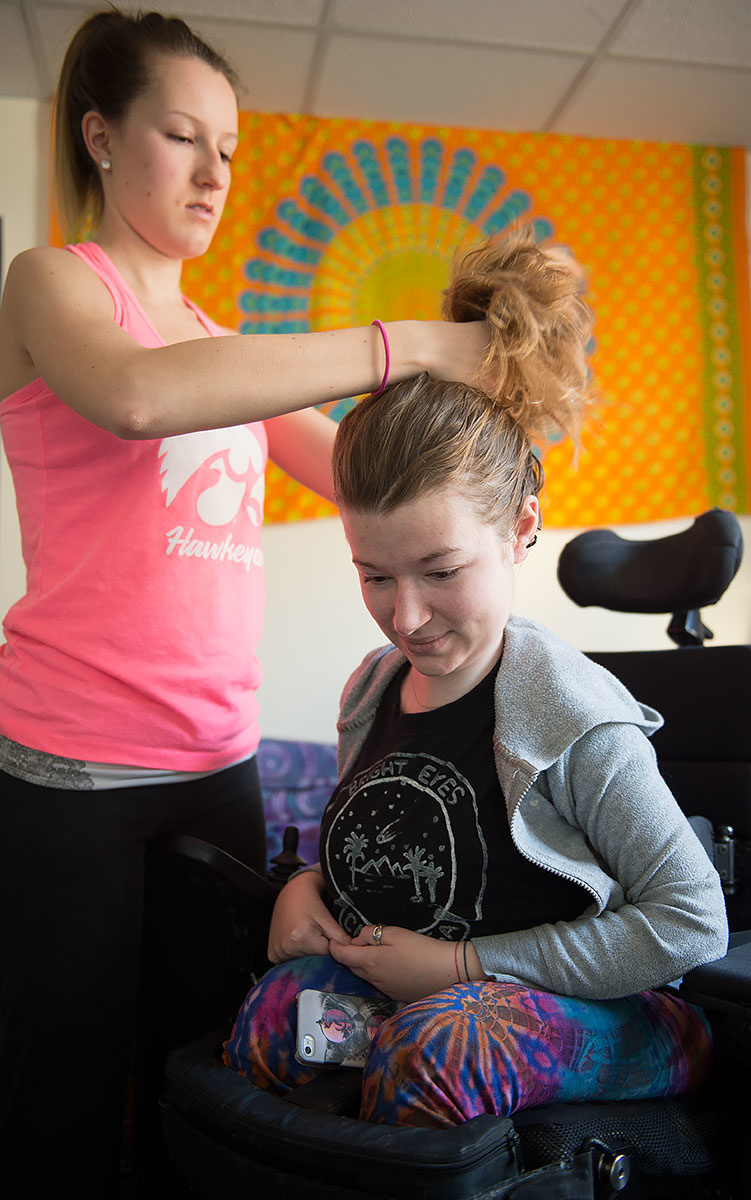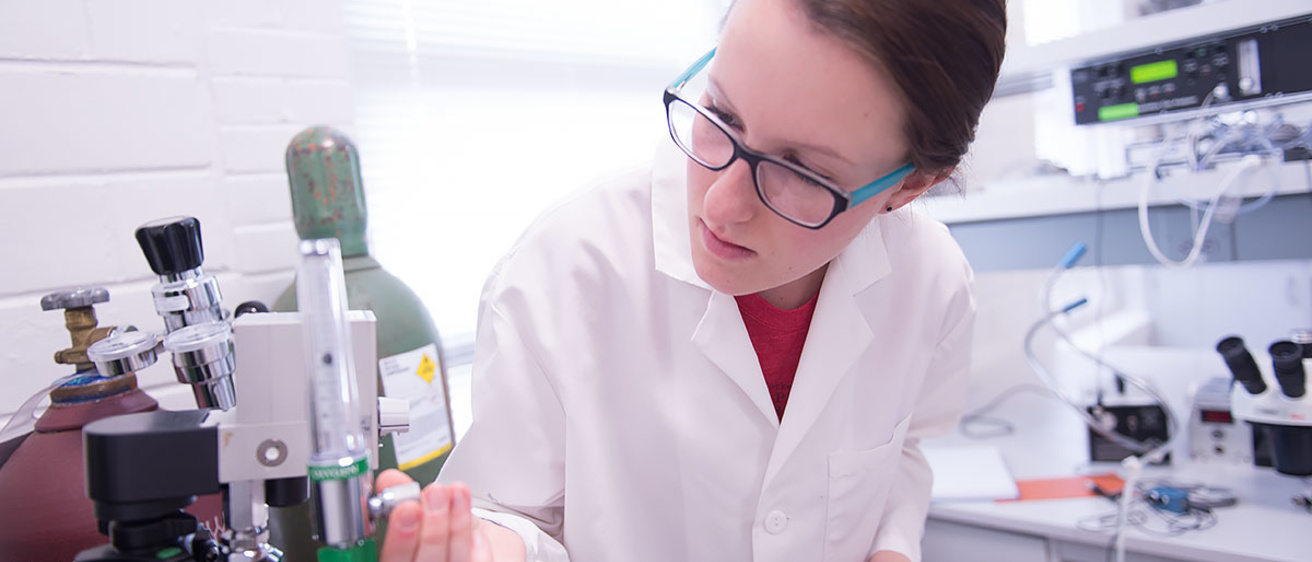Lisa Fasone was 3 when doctors diagnosed her with an irregular heartbeat, a common condition that in most people is harmless.
But Fasone was different.
More than 25 percent of her heartbeats were irregular, an amount high enough to cause damage to her heart and set off years of medicine and testing. Though her heart condition eventually disappeared, Fasone was forever changed by her visits to the pediatric hospital.
Today, the 21-year-old junior at the University of Iowa credits the experience with her decision to become a physician assistant and help sick children, especially those living in poverty.
Lisa Fasone
Hometown: Algonquin, Ill.
Areas of Study: She is working toward a Bachelor of Science in Human Physiology. Her goal is to become a physician assistant.
Graduation: May 2016
Activities:
On Iowa! leader
College Transition Workshop leader for general chemistry
Best Buddies (a volunteer program that pairs UI students with people with intellectual and developmental disabilities
Volunteer with the UI's mobile clinic
Volunteer at University of Iowa Hospitals and Clinics emergency room
Direct Care Professional, assisting a UI student with muscular dystrophy
Gap Medics (pre-medicine shadowing program) in Tanzania
Volunteer at Shelter House in Iowa City
Iowa Center for Research by Undergraduates (ICRU) Research Fellow
Fun Fact: While most of Lisa's friends went to Disney World for spring break her junior year in high school, she traveled to South Africa with a church group where she repaired homes in squatter villages and served up to 200 children at mealtime.
"Times in the hospital motivated me to want to become a physician assistant not because I was seriously ill, but because I noticed other kids there with cancer and other serious illnesses," she says. "I would love to one day help kids like them."
Fasone is already making a difference through her work with Melissa Bates, an assistant professor of health and human physiology at the UI whose research centers on, of all things, a defect that occurs in infants who have undergone surgery for a congenital heart defect. The two will continue their research this summer, thanks to an Iowa Center for Research by Undergraduates fellowship. It's the second ICRU fellowship Fasone has received for her work with Bates.
The UI researcher couldn't be more impressed with her young assistant.
"Most memorable about Lisa is not only how quickly she learns new material, but how driven she is to succeed," Bates says. "It is unusual to have a student as self-motivated as Lisa is, but it's definitely a quality you can't teach.
"Many students shirk away from tasks that feel unfamiliar and, by extension, uncomfortable," she adds "But Lisa grabs hold of every opportunity fearlessly."
Fasone grew up in Algonquin, Ill., a suburb about 40 minutes northwest of Chicago. She attended Dundee-Crown High School where more than half the students were considered economically disadvantaged. Though Fasone's parents had the resources to support her and her older sister, she never lost sight of the students who had less.
"I've always believed that what you have on the inside is so much more valuable than what you have on the outside," she says.
By her junior year in high school, Fasone was following her heart with a passion. While her friends traveled to Disney World for spring break, Fasone joined a mission group in South Africa, where she repaired homes and fed hungry children. While there, she was struck by the suffering caused by common ailments easily treated in the United States with basic medical care.
"I thought it was interesting that they were literally throwing malaria vaccinations at us before we left on the mission trip," Fasone says. "But once in South Africa, there were no vaccinations to give to the people. That confused me. I was like, 'We should be able to go over there and treat common illnesses.'"
By her senior year, Fasone had quit the soccer team to focus more on school and to save money for college. She worked as a cashier at Target.
Once at the UI, Fasone hit the ground running. Besides carrying a full load of courses, she sought out volunteer opportunities to help others, including a stint with the UI mobile clinic and the Best Buddies program. She also volunteered with On Iowa! and served as a College Transition Workshop leader, helping other students with general chemistry.
Brian Corkery, senior associate director of the UI's Academic Advising Center, supervised Fasone as she worked with first-year students struggling with chemistry.
"Her ability to balance patience, support, and attention to task in this arena has shown uncommon maturity and skill," he says. "She is an outstanding student with tremendous positive energy and strong desire to help others."

So it came as no surprise last year when Fasone accepted a job assisting a fellow student who has muscular dystrophy and uses a wheelchair. From 10 p.m. to 9 a.m. three nights a week, Fasone monitors the student as she sleeps, turning and repositioning her on a regular basis. In the morning, Fasone helps the young woman shower, dress, and get to class.
And what started out as a job has since grown into a friendship.
"She's one of my best friends," Fasone says. "When I'm not on the clock, we'll hang out."
If working more than 30 hours a week and attending school fulltime wasn't enough, Fasone recently began volunteering at a homeless shelter in Iowa City.
"I just felt I could do more," she says.
Fasone says she could probably get straight A’s if she gave up her job and volunteering, but she would rather have the experience and a 3.65 grade point average.
"I feel like there is so much to be done out there, and if you have the resources, why not give back," she says. "I think the worst excuse is when people say they don't have time. You always have time.”
